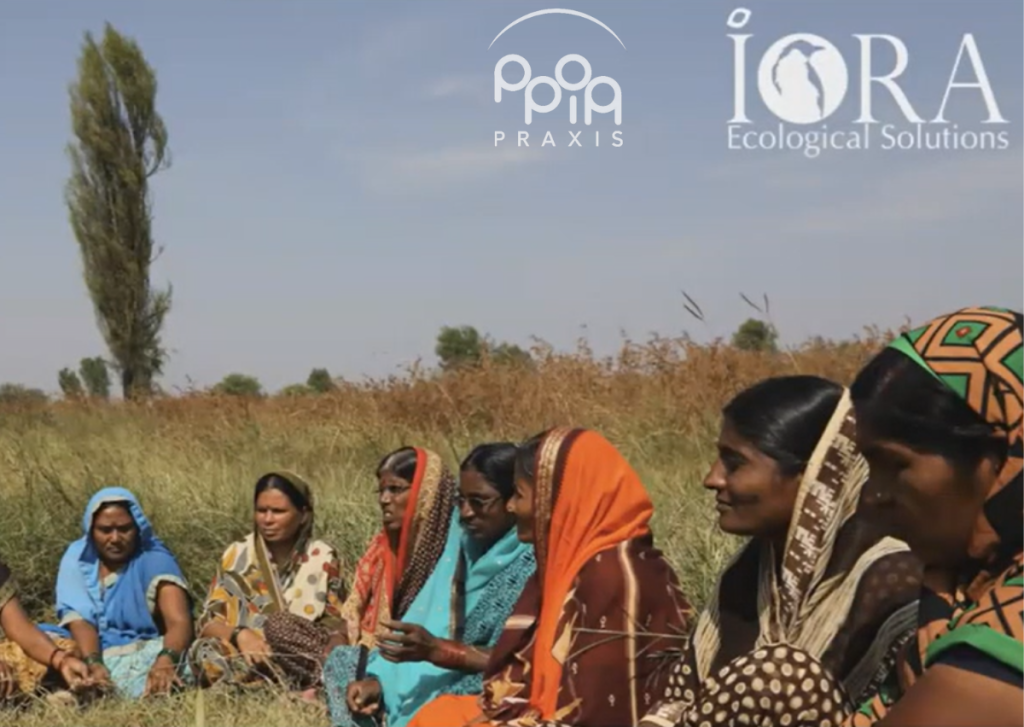Image used for representation purpose only.
Adaptation to climate change is critical for the times we live in. However, more often than not, these adaptation efforts tend to be top-down and have a centralized nature of operation, depriving communities impacted by climate change, of decision-making powers. Poor people have been navigating climate variability and extremes for decades, and little attention has been paid to including them in the adaptation strategy.
In this sense, Community-based adaption to climate change that involves community-led processes, based on their priorities, needs, knowledge, and capacities, is a much-needed paradigm shift from the top-down approaches. However, community-based adaptation faces critical challenges in being scaled up to broader policies. How is climate change impacting the lives of communities and how have they been navigating it? What is the evolution of community-based adaption? What are some of the limitations of community-based adaptation? How can Community-based Adaptation be scaled up?
Introduction: Navigating the Climate Crisis
The seminar opened with a compelling overview of the global climate crisis, emphasizing the critical need for collaborative action. Swapan Mehra, the Founder of Iora Ecological Solutions aptly noted that climate change is no longer a distant threat but a present reality requiring integrated, nature-based solutions.
The speaker shed light on alarming statistics: global temperatures have risen by 1.5°C, triggering drastic climatic events such as severe floods, intense droughts, and melting glaciers. These events are disproportionately impacting vulnerable communities with limited adaptive capacities, highlighting the urgent need for equitable solutions.
Forecasting the Impact of Climate Change on India
It is expected that in the next three or four decades, wheat yields will go down by 40-50%, rice yields are expected to go down by 30-40%, and milk production is estimated to go down by 1.8 million tons. On the whole, there is a risk, the World Bank predicts that by 2100, between 1.8- 3.4% of our entire GDP will be lost due to climate change.
India faces significant climate challenges: declining crop yields, increased flooding, and biodiversity loss. Despite these hurdles, the country has been proactive in climate action, adopting the National Action Plan on Climate Change and pledging to achieve net-zero emissions by 2070.
Community-centric Solutions
The speaker highlighted that the highest impact of climate change is borne by those who have the least capability to fight back or adapt, i.e. the community. Adaptive capacity is a function of basically resources, right, resources and awareness and knowledge.
ADAPTIVE CAPACITY = f(R,K,A)
R: Resources (financial, physical, and natural resources available)
K: Knowledge (technical expertise, education, and understanding)
A: Awareness (recognition of risks and adaptive strategies)
The seminar underscored the importance of community-based approaches to climate action. Having a village prepared for flood may require early warning systems, but having the local infrastructure to fight flood to some extent, to fight fire to some extent, is something that we can do collectively as communities. This way we can kickstart the process of resilience building while we fight for the larger resources that need to flow into this sector. By integrating indigenous knowledge with scientific innovations, these initiatives can simultaneously address adaptation and mitigation. Examples such as agroforestry and micro-irrigation demonstrate how localized projects can generate both environmental and socioeconomic benefits.
Experiences from Ground
- Gujarat- Peanut Crop in Junagarh
IORA conducted a comprehensive climate vulnerability assessment for peanut crops in Junagarh, Gujarat. By analyzing climate trends, mapping stakeholders, and developing farm-level GHG inventories, IORA devised gender-sensitive Climate Adaptation and Mitigation Practices (CAMP) and successful dissemination through online/offline Training of Trainers.
- Gorakhpur, Uttar Pradesh
Community-Based Micro-Climate Resilience in Gorakhpur, India, helps the urban poor adapt to climate change by constructing affordable, flood-resilient houses using energy-efficient, locally sourced bricks. Combining modern techniques with indigenous knowledge, the project delivers low-cost, eco-friendly housing, reduces carbon emissions, and empowers beneficiaries to participate in construction and promote sustainable practices within their community.
- Assam
IORA Ecological Solutions supported Assam in developing its State Action Plan on Climate Change by conducting high-resolution vulnerability assessments, identifying drivers like irrigation and crop insurance deficits, and ranking district vulnerabilities. This analysis informs strategies to address climate risks, enhance resilience, and guide targeted investments for sustainable development and nature conservation.
Challenges persist, particularly in funding and implementing adaptation strategies. The speaker called for stronger advocacy for state action plans, better resource allocation, and community empowerment. Addressing land degradation, a critical issue for India’s food security was highlighted as a priority.
The seminar concluded with a call to action: shifting from top-down solutions to localized, community-driven approaches. By leveraging climate data, fostering community agency, and amplifying indigenous responses, we can create a sustainable pathway to resilience. The seminar was a powerful reminder that combating climate change is not just a governmental task but a collective responsibility. As individuals and communities, our actions today will determine the future of our planet.
(This lecture note was authored by Sriya Rane, a Praxis Learner from the 2024–2026 cohort, currently placed in Sultanpur, Uttar Pradesh.)





